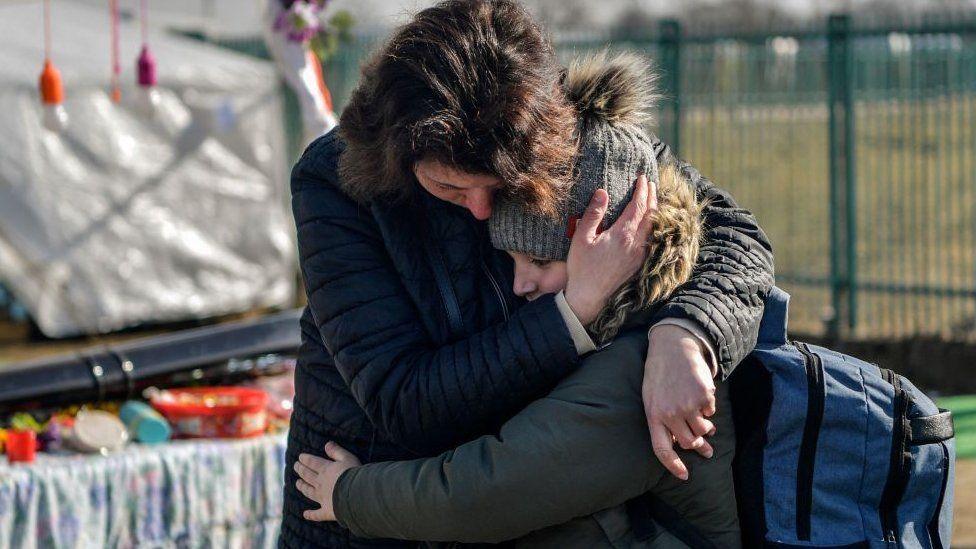Homes for Ukraine: 185 sponsorships 'broken down' in NI
- Published
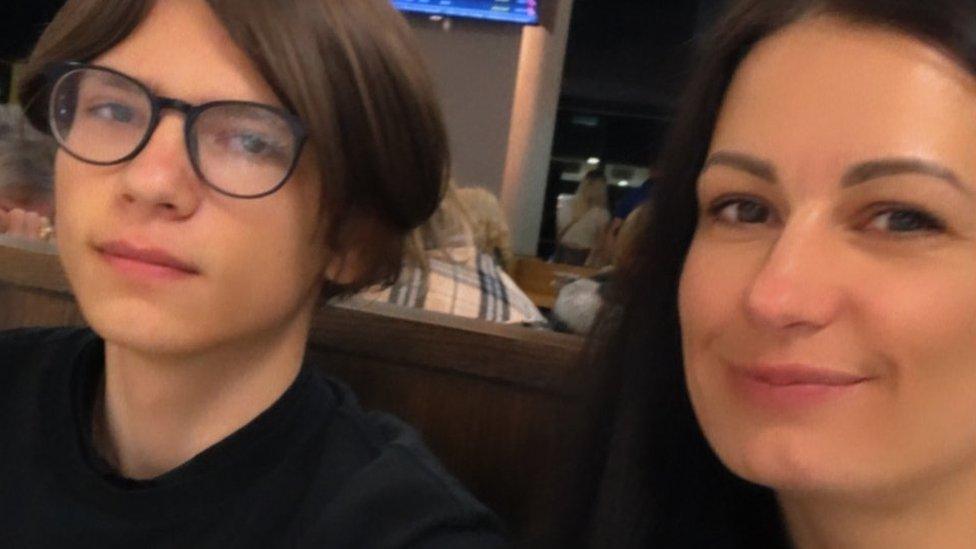
Mariana Dzherelenko and her teenage son are looking for a new home after their sponsorship arrangement broke down
Sponsorship arrangements between Ukrainian refugees and hosts who offered them accommodation have broken down in 185 cases in Northern Ireland.
The refugees are among several hundred people who sought shelter in Northern Ireland under the Homes for Ukraine scheme after the war began in February.
In almost half of the 185 cases, the refugees were matched to new hosts.
But in 14 cases Ukrainian nationals became homeless and had to be provided with temporary accommodation.
The figures were obtained by BBC News NI from the Northern Ireland Executive Office at Stormont.
Its spokeswoman said the Northern Ireland Housing Executive (NIHE) was "responsible for any statutory duties that arise from a breakdown in sponsorship arrangements".
She added that the NIHE was "continuing to explore options for 33 Ukrainian households" while 25 others secured their own rented accommodation after their sponsorships broke down.
'Sleeping on a sofa'
Mariana Dzherelenko and her teenage son are among the refugees struggling to find a new home after their relationship with their Northern Ireland host ended in acrimony.
They fled from Lviv city in western Ukrainian this year and travelled through Poland and Germany before arriving in the UK.
Ms Dzherelenko said: "In Ukraine I had my own business. It was a cafe bakery. Also I worked [as a] business coach."
"We took only two suitcases and backpacks and just went out from our flat."
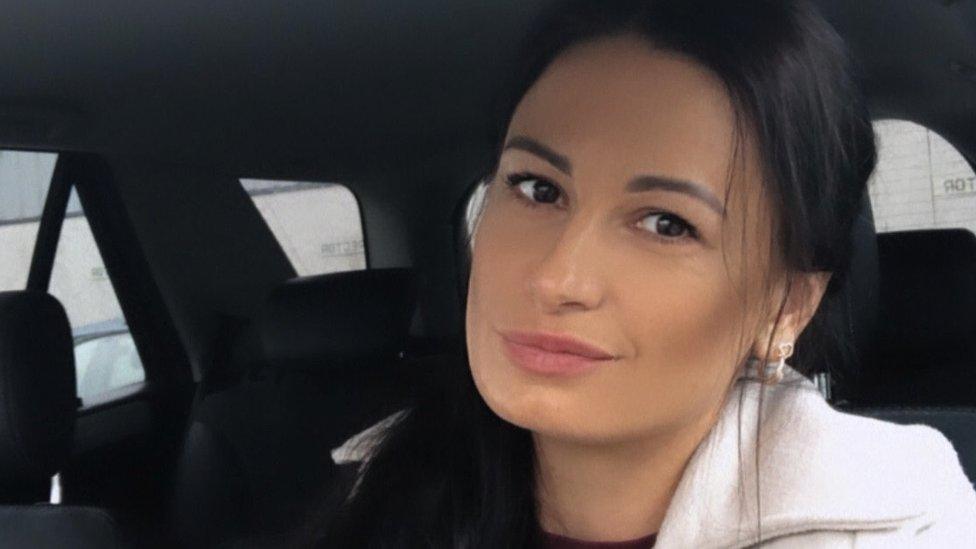
Mariana was a self-employed businesswoman when she lived in Ukraine
They arrived in Northern Ireland in June and were matched with a host in County Down who offered them the use of his second home.
She said the two families enjoyed a "really brilliant" relationship for the first few months and her son began attending a nearby school.
"We felt really comfy and cosy. We were so happy that finally we found a home where we can start a new life," she recalled.
However, the relationship between Ms Dzherelenko and her host began to sour during the months that followed.
By late November she recalled being told to leave the house and never return.
She is homeless and sleeping on a sofa in a Ukrainian friend's home in County Antrim.
Her son, who recently turned 16, is staying about 60 miles away with another friend, so he does not have to change schools again.
Ms Dzherelenko is desperate to find a secure home where they can live together but was told there was nothing available until the new year.
"It's so stressful for me and my son," she said.
"We can't live separately and move every week or every month."
She said her son's only wish was to live with her again, no matter where, and he has even asked her if it was possible to return to Ukraine.
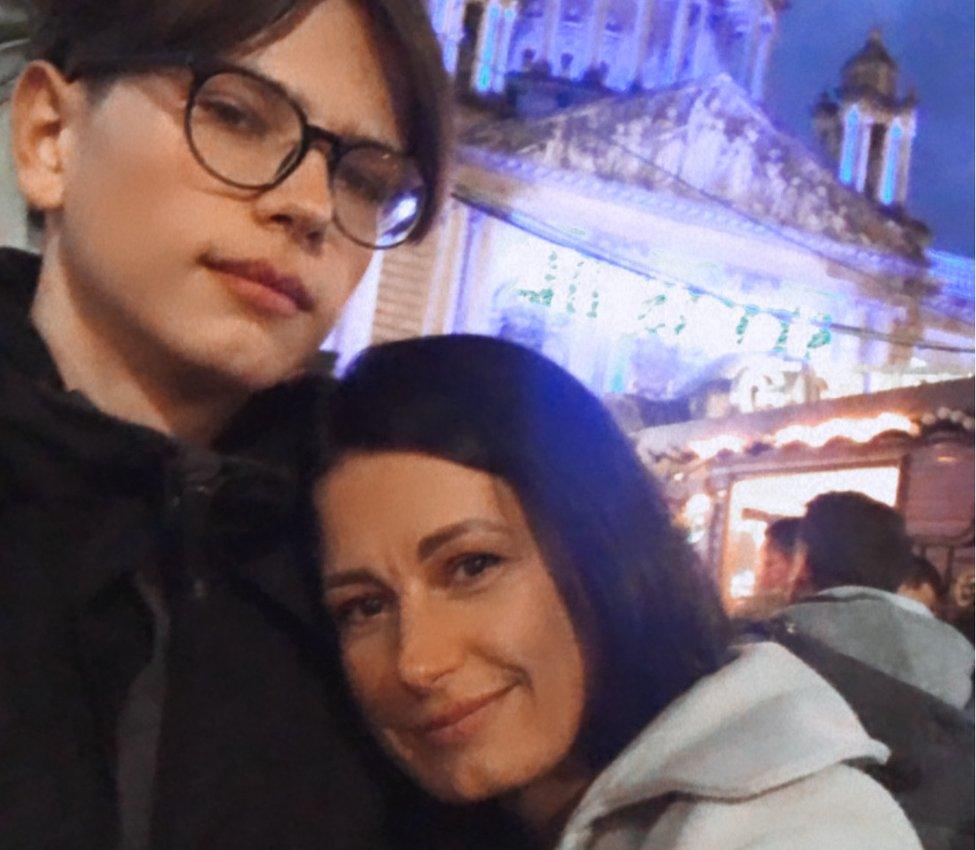
Mariana and her son are living about 60 miles apart and desperately want to live together again
"I would like to go home because I left my the whole life in Ukraine - my business, my job, my family... but unfortunately I can't," Ms Dzherelenko explained.
"Why? Because it's winter time, it's war - no heating, no electricity, no network.
"My brother is fighting so I know how it's going on [from] inside, not from the news."
She became emotional as she explained that her brother was a reserve soldier who was injured in a shooting in the early days of the war.
He returned to the frontline shortly after his wounds were treated.
Although she cannot go home, Ms Dzherelenko is hesitant about entering another host's home because of her recent experience.
She would prefer to rent somewhere where she and her son could live independently in the longer term but is finding the rental market difficult to access.
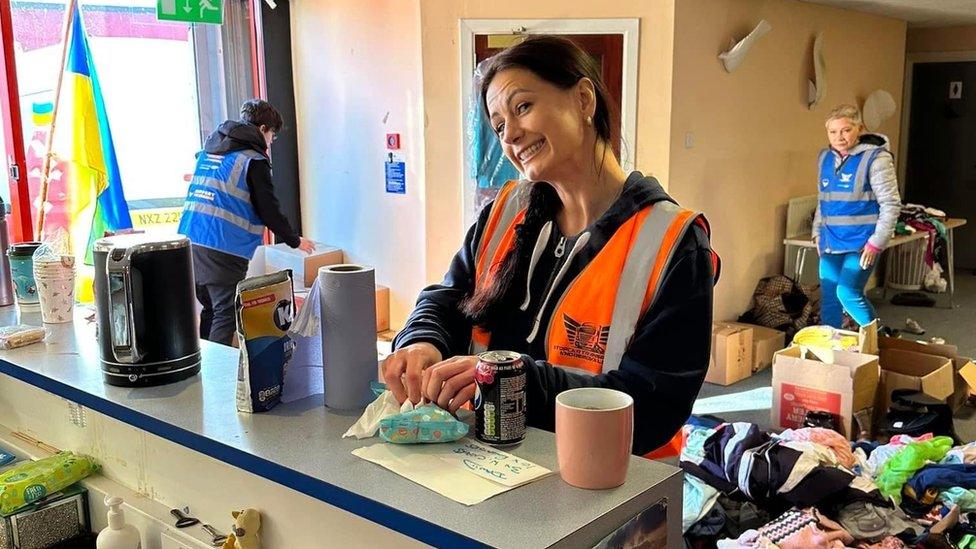
Mariana has been volunteering with an organisation that sends aid trucks to Ukraine
The Homes for Ukraine scheme was launched in March and under its terms UK householders are invited to offer a spare room or whole home for a period of no less than six months.
In return hosts can receive a monthly "thank you" payment of £350 from the government.
The payment is optional but dependent on the host meeting eligibility criteria.
About 900 individuals or families from Northern Ireland are sponsoring Ukrainian refugees.
Some of those sponsors have offered accommodation at more than one property.
"In total, 1,217 separate addresses in Northern Ireland have been offered by sponsors as accommodation to Ukrainian people," the Executive Office's spokeswoman confirmed.
In relation to what happens after the initial six-month period elapses, she said the NIHE "has put in place a team and a process to assist Ukrainians nationals where sponsorship arrangements have broken down" and that team would "explore alternative accommodation options".
"Based on the individual circumstances and preferences of the Ukrainian national, these options could include a match to an alternative host under the Homes for Ukraine scheme, private rented sector accommodation or a social housing application."
Of the 185 sponsorships that have broken down, 88 have been matched to an alternative host and 54 Ukrainian households have left the scheme entirely.
Despite her distress over her housing situation, Ms Dzherelenko is hoping to stay in Northern Ireland where people are "so good and kind".
"Mostly I see that everybody here is trying to help me so much," she said, praising the "amazing" staff at Belfast's Ukraine Assistance Centre.
- Published14 December 2022
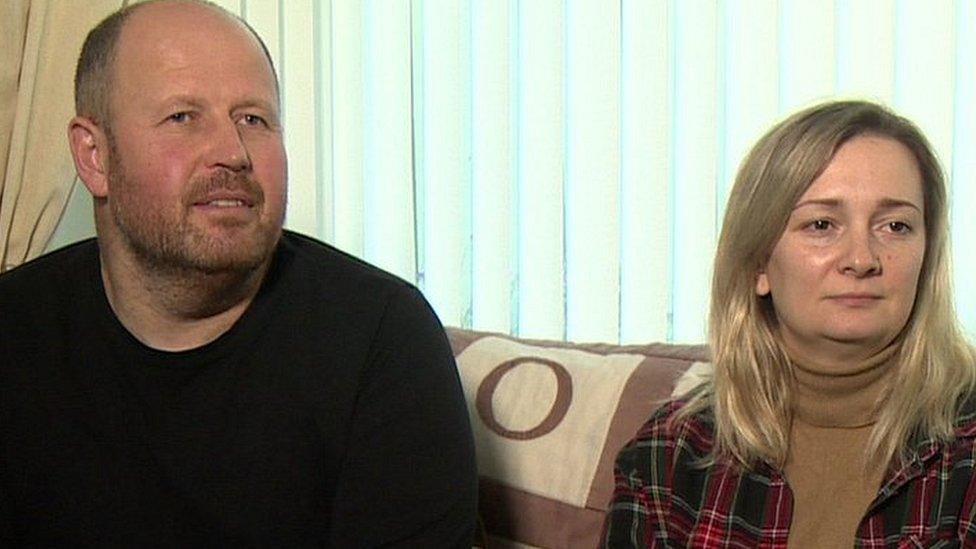
- Published10 November 2022
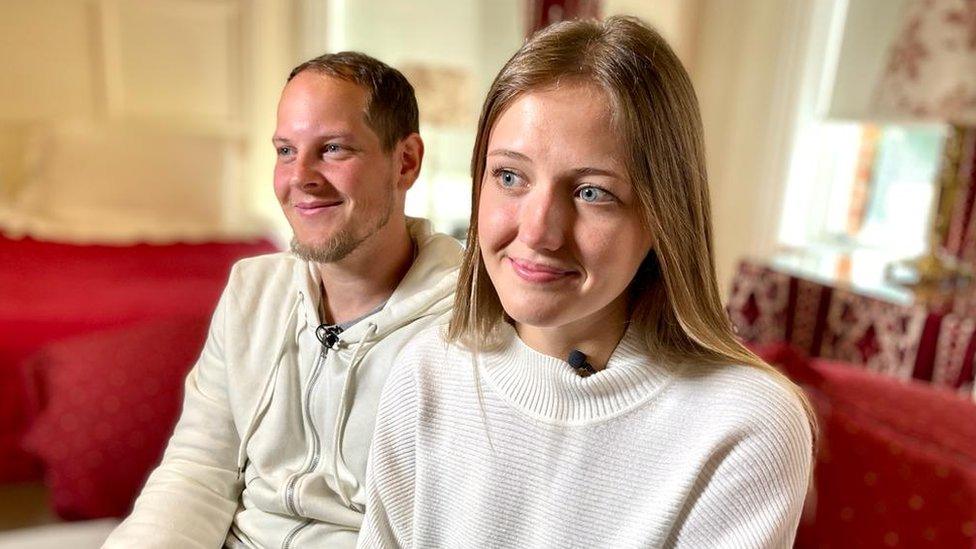
- Published29 April 2022
